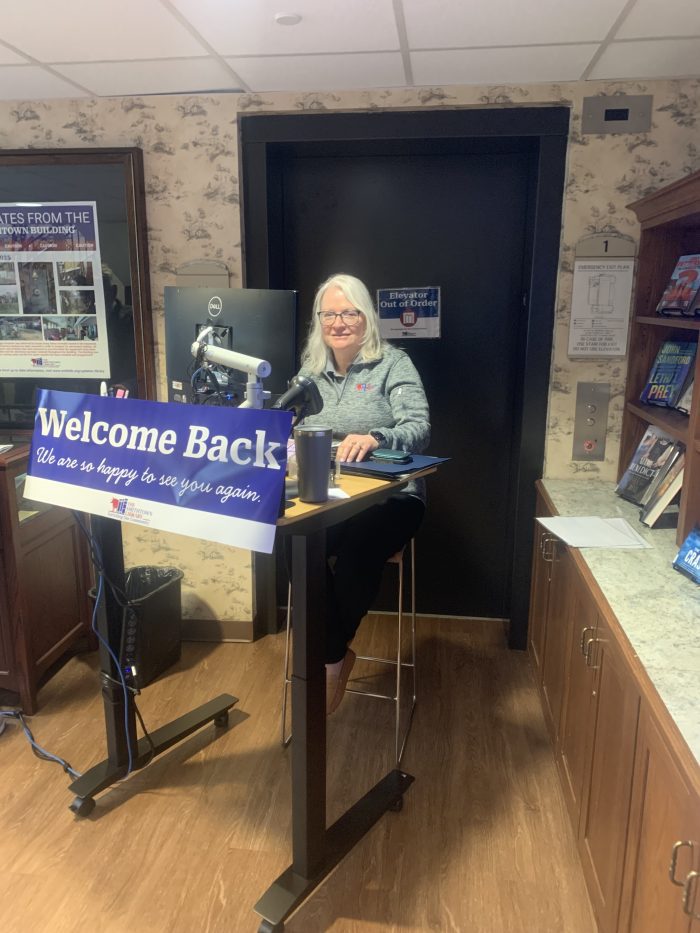Editorial: The Smithtown Library — a sanctuary restored
For eight months, the Smithtown library’s Main Branch on North Country Road was closed. Readers were able to visit other branches, but the library is more than just a place to exchange books.
The library is certainly a hub of ideas and information, full of fiction, nonfiction and history. It is also an essential resource for those who need to use a computer but don’t have one, or would like access to free wifi. One of the few places where economic class doesn’t play a role, the library provides a haven with no spending expectations. You can learn how to play mahjong or fold a piece of paper into an intricate origami figure. Gardening clubs and sewing clubs meet regularly. Offering a podcast and community room, the library provided the setting for numerous friendly conversations.
Walking through the doors again on May 5, patrons are greeted by friendly staff. In the entrance corridor, a television plays recordings from the destructive rains of August 19 and a sped-up recording of the subsequent work. In one recording, water pushes furniture and shelves around like toys. Books float away and out of the recording. In another, the murky brown water slowly fills the hall until suddenly, the pressure pushes out the wall. In a picture, books lay in piles across the floor–any reader would cringe at the sight. The library is back though, and will return fully in coming months, with the bottom and second floors open and services and programs once again available. However, the status of libraries is precarious as the administration looks to cut funding.
When the Smithtown building closed, many card-holders travelled to other branches. When the federal government began eliminating grants to libraries, we imagined what we would do without an accessible library.
The Institute of Museum and Library Services is not guaranteed. While libraries will still exist without the small federal agency, which only employed around 70 people and from the perspective of the federal government is unnecessary, they may not receive grants for programming or internships. Recently, a judge blocked a move to place its employees on temporary leave, giving the institute a reprieve. However, the agency is still at risk of getting washed out; it is possible resources and programs will get carried away by the swift stream of government efficiency.
In the meantime though, the wonderful librarians and administrators at the Smithtown library are ensuring that residents have access to the wealth of knowledge inside.







